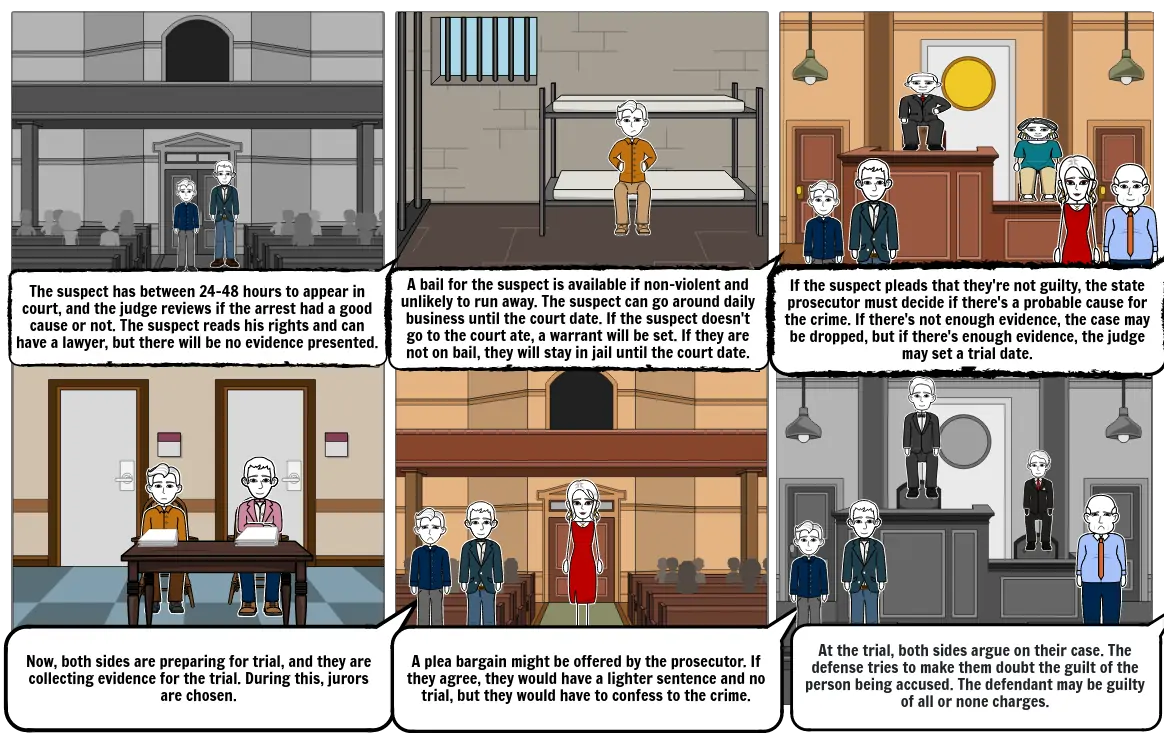SSc project

Storyboard Text
- The suspect has between 24-48 hours to appear in court, and the judge reviews if the arrest had a good cause or not. The suspect reads his rights and can have a lawyer, but there will be no evidence presented.
- A bail for the suspect is available if non-violent and unlikely to run away. The suspect can go around daily business until the court date. If the suspect doesn't go to the court ate, a warrant will be set. If they are not on bail, they will stay in jail until the court date.
- If the suspect pleads that they're not guilty, the state prosecutor must decide if there's a probable cause for the crime. If there's not enough evidence, the case may be dropped, but if there's enough evidence, the judge may set a trial date.
- Now, both sides are preparing for trial, and they are collecting evidence for the trial. During this, jurors are chosen.
- A plea bargain might be offered by the prosecutor. If they agree, they would have a lighter sentence and no trial, but they would have to confess to the crime.
- At the trial, both sides argue on their case. The defense tries to make them doubt the guilt of the person being accused. The defendant may be guilty of all or none charges.
Over 30 Million Storyboards Created

